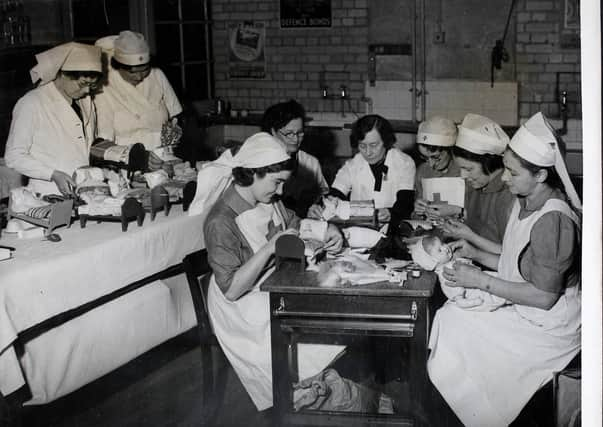Why people’s response to Covid-19 lockdown has been just like the Blitz


The study found that in both situations, people often acted ahead of the government measures or recommendations.
In the pre-war and the pre-lockdown periods, there was a lessening of initial anxiety around the respective threats, according to the study.
Advertisement
Hide AdAdvertisement
Hide AdDespite war already being declared, surveys indicated the majority of people were not taking air-raid precautions.
And despite reports of the virus in China, large public events in the UK such as the Cheltenham Races continued to take place.
A key similarity between the two situations at this point was the failure to learn from comparable events overseas, the study suggests.
Study author Professor Edgar Jones, from the Institute of Psychiatry, Psychology and Neuroscience at King’s College London, said: “Although the term ‘unprecedented’ has been used frequently to describe the Covid-19 pandemic, the situation has significant parallels with previous threats to the public, particularly the Blitz of the Second World War.
“Lessons can be learnt from how people responded both to the Blitz itself and to the protective measures and public messaging that were issued by the government at the time.” Documents from five departments of government for the period of 1938 to 1945 and documents released by scientific advisory groups during the current pandemic were analysed.
The study drew comparisons between the response of the British public and the government in the two situations and identified a number of similarities.
During the Blitz, the government did not predict the majority of people would prefer to shelter in their own homes rather than the safer external underground “deep shelters” that had been provided.
The paper in the Lancet Psychiatry journal states that a similar reluctance to leave home has been observed after the easing of the Covid-19 lockdown – described as a form of deep-shelter mentality.
Advertisement
Hide AdAdvertisement
Hide AdEvidence from the Blitz provides insight into how powerful this mentality is in times of threat, since the government had to adapt its shelter policy by abandoning the external deep shelters and instead provide internal steel cages to allow people to shelter safely at home, the study said.
Prof Jones said: “If politicians want to introduce a policy, they’ve got to listen to the public and give them a sense of engagement.
“In the Second World War, people preferred to shelter in their homes because there is a deep psychological sense of being protected at home.”
Comments
Want to join the conversation? Please or to comment on this article.